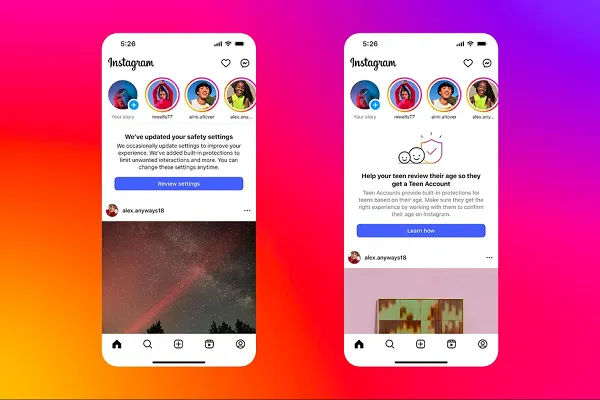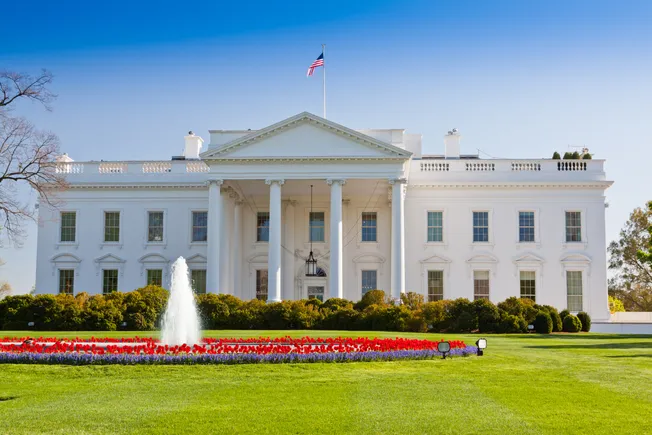Post-Pandemic Challenges: How Does Marketing React to Constantly Changing Demands?
In the post-pandemic time, a lot of enterprises are still struggling to find the right path from the Corona crisis to getting back on track. Managers are facing challenges to adapt to the changing demands of both businesses and...

In the post-pandemic time, a lot of enterprises are still struggling to find the right path from the Corona crisis to getting back on track.
Managers are facing challenges to adapt to the changing demands of both businesses and consumers. It’s up to them to succeed in this “New Normality“ and find a way for their companies to be competitive.
The “Next normal” has caused businesses in all their departments, including Marketing, to develop quickly in order to keep up with the market demands. Trends come and go even faster than before the pandemic. Cultural standards, values, and behavioral patterns of consumers are also changing in these tough times, which means that Marketing should too. However, this growth, everybody is looking for, cannot happen gradually. Time does not allow it. It should happen right now.
Uhura Digital has gathered examples, which will become crucial for Business and Marketing in the “Next Normal” to understand and implement and that could contribute to the main challenge of building a sustainable enterprise:
Direct-to-Consumer a.k.a D2C
“Direct-to-Consumer“(D2C) is a Marketing and Sales approach, whereby enterprises and brands build up relationships with customers directly, without involving intermediaries, retail traders, or platforms causing margins to increase.
What is D2C Marketing and why it is good for your company?
A significant advantage is gaining valuable insight into the customer and their behavior thus building stronger and more personal brand-customer relationships. Furthermore, businesses have more control of their brand and have a bigger and more detailed customer database, which plays an important role when preparing a digital sales strategy.
Consumers are used to shopping in physical stores, the world pandemic took that away from them. Yes, online shopping is popular, but between lockdowns, online trading proved its worth by showing increasing levels and became equally important for brands to develop, especially for those, which so far have highly relied on indirect customer relationships or sales.
A survey by the eCommerce software provider Spryker shows that about 60% of the fashion and sports brands have their own online trade but only 29% of the brands within the beverages or cosmetic industry. This is in a way understandable if one considers the challenges with which the setting-up of a Direct-to-Consumer strategy is faced, such as for example, conflicts with current important sales partners, complex IT structures, logistics, or the need for new and additional know-how when operating such new changes.
But the benefits often overrule the risks and – as is often the case in life – investing in a wise ‘Direct-to-Consumer’-strategy does not mean an ‘Either /Or’. Brands should start paying attention not just to their online trade but also to their online business strategy, and customers’ needs, and by doing so, they will most definitely succeed.
Uhura develops digital Direct-to-Consumer solutions and can advise enterprises on the analysis, development of a strategy and service, technical implementation, and marketing of ‘Direct-to-Consumer’ approaches.
Digital Events – The New Way of Bringing People Together
Why is B2B Lead-Generation so important?
B2B lead generation is the process of identifying the ideal customers for your product or service, then attracting them to buy. It is an essential activity for B2B sales and marketing teams. Events such as trade shows, conferences, or internal house events are where usually leads and customer contacts are generated.
For some people time during the Corona crisis just stopped, for others, it was time for preparing strategies in order to still be competitive with the global changes on the table. The Covid pandemic became a great challenge for managers, working in B2B marketing, since before that all events, which intention was to bring people together (in this case businesses).
With the “New Normality,” there is a growing demand for inventing a new way of conducting these events. The real question is how?
The Solution: Digital or Hybrid Events
Thanks to the Internet and all technological innovations, events are now done either fully virtual or in a hybrid way thus enabling people to participate and the world to go back to at least a little too normal. This doesn’t mean, of course, that everything runs smoothly.
A lot of these events don’t even use all possibilities, which are currently available to them, not just in terms of technological advancement and knowledge of tools. What is more, companies should consider more interactive and attractive ways of presentations for their virtual events to create a really worthwhile experience. Moreover, as there is no media disruption during virtual and hybrid events, lead generation for example is therefore feasible and can be measured.
Uhura supports enterprises to transform their event concepts into digital and hybrid events, creates the contents, event branding, and also the overall digital planning, organization of the event and presentation as well as the technical implementation.
The New Sales Funnel
Since Covid changed everything in our lives, it is only natural that it changed also Sales, Marketing, and the way business is conducted as a whole. Therefore, managers’ B2B strategies should also change if enterprises want to continue being competitive in the market.
The following 2 topics are to be discussed when retailoring the brand’s attitude toward its customers:
How did Covid-19 change the attitude of my customers?Due to the Corona crisis, the whole world changed, which resulted in new needs of the customers. In order to be still relevant to their customers, B2B marketing experts should look at their customers from a fresh angle. This means that new customer insights, which capture the current situation, should be generated.
How can the customer journey be redefined?According to a survey by Accenture, 46% of SMEs have invested considerably to design their infrastructures such that they become more virtual, linked, or contactless. What does this mean?
Well, digital platforms are gaining even more popularity than before, so managers should start following the new rules. Digital tools and increasing your B2B sales team’s technical know-how will be of help in achieving this objective.
Managers should only concentrate on the valuable leads and see if their previous digital strategy is still relevant.
Uhura Digital works for a number of B2B businesses and B2B marketing projects, where they design customer journey maps together with customers to create effective lead-gen campaigns and use paid-media budgets optimally. They give advice when you adjust your B2B Marketing.
Social Media
If the attitude towards digital platforms changes because of the Covid-19 situation, social media will also experience some changes as it is also part of the digital platforms. It Is observed that the use increased during lockdowns, which is not surprising, but this means that contents must also be designed in a new, more relevant way for the customers.
New Social Media Trends appear to be winning strategies:
Paid Media #1 – smaller platforms appear to be sometimes a better solution for the implementation of digital strategiesSocial Media as a customer service channelThe importance of video and audio is still growing dramaticallyInfluencer – the smaller sibling you never had. The increasing trust in content creators.Paid Media #2 – boost your social media image by complementing your organic feed with some paid contentConclusion
To put it in a nutshell, as mentioned before, especially after the Corona crisis the customer experience is more important than ever. Today it should be tailored not by the target group as a whole, but rather individually in order to build a stronger brand-customer connection. How can enterprises actually do that?
Purpose-driven marketing strategy is the key to building a loyal brand audience. People connect to enterprises that speak to them by sharing common views towards the world surrounding them. It is crucial for the customer to identify with the brand.
Therefore, managers have to adopt the attitude of the companies and find the right way to communicate their values and authenticity to the public.

 Koichiko
Koichiko 







.jpg)























